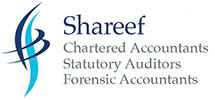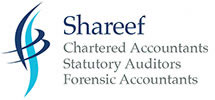Further rates for 2021/22 confirmed
In addition to confirming the basic rate band and personal allowance for 2021/22, the Treasury has also confirmed the cash equivalents for certain vehicle-related benefits in kind to help employers prepare. What do you need to know?

Uncertainty
By this point in the year, the tax and NI rates, bands and thresholds are usually well-established. However, the delayed Budget has meant that the position for 2021/22 is unclear despite the new tax year being only a few weeks away. There have been some confirmations though if you know where to look. The latest relate to company cars and vans.
Cars. The taxable amount where an employee is provided with a company car depends on a “relevant percentage” (based on its emissions) multiplied by the list price. However, where the employer pays for any private fuel the taxable amount is the relevant percentage multiplied by a fixed figure, and for 2021/22 this has now been confirmed as £24,600 (an increase from £24,500).
Vans. The taxable amount for a company van does not depend on emissions. A benefit only arises where the van is used for private journeys. This is then a fixed amount, which for 2021/22 has been confirmed as £3,500 (up slightly from £3,490). Where fuel is provided for private journeys, the fixed taxable amount is increasing to £669 (from £666).
Related Topics
-
Beating the landlord tax hikes
Once again, landlords will be hit by tax increases announced in the Budget, even if they are operating through a company. What are the changes, and can anything be done to mitigate them?
-
Electronic VAT return
-
Government announces significant climbdown on IHT reforms
The introduction of a £1 million cap on 100% business and agricultural property relief from April 2026 has been criticised particularly heavily by the farming industry. The government has announced a significant watering down of the measure. What’s happening?



 This website uses both its own and third-party cookies to analyze our services and navigation on our website in order to improve its contents (analytical purposes: measure visits and sources of web traffic). The legal basis is the consent of the user, except in the case of basic cookies, which are essential to navigate this website.
This website uses both its own and third-party cookies to analyze our services and navigation on our website in order to improve its contents (analytical purposes: measure visits and sources of web traffic). The legal basis is the consent of the user, except in the case of basic cookies, which are essential to navigate this website.